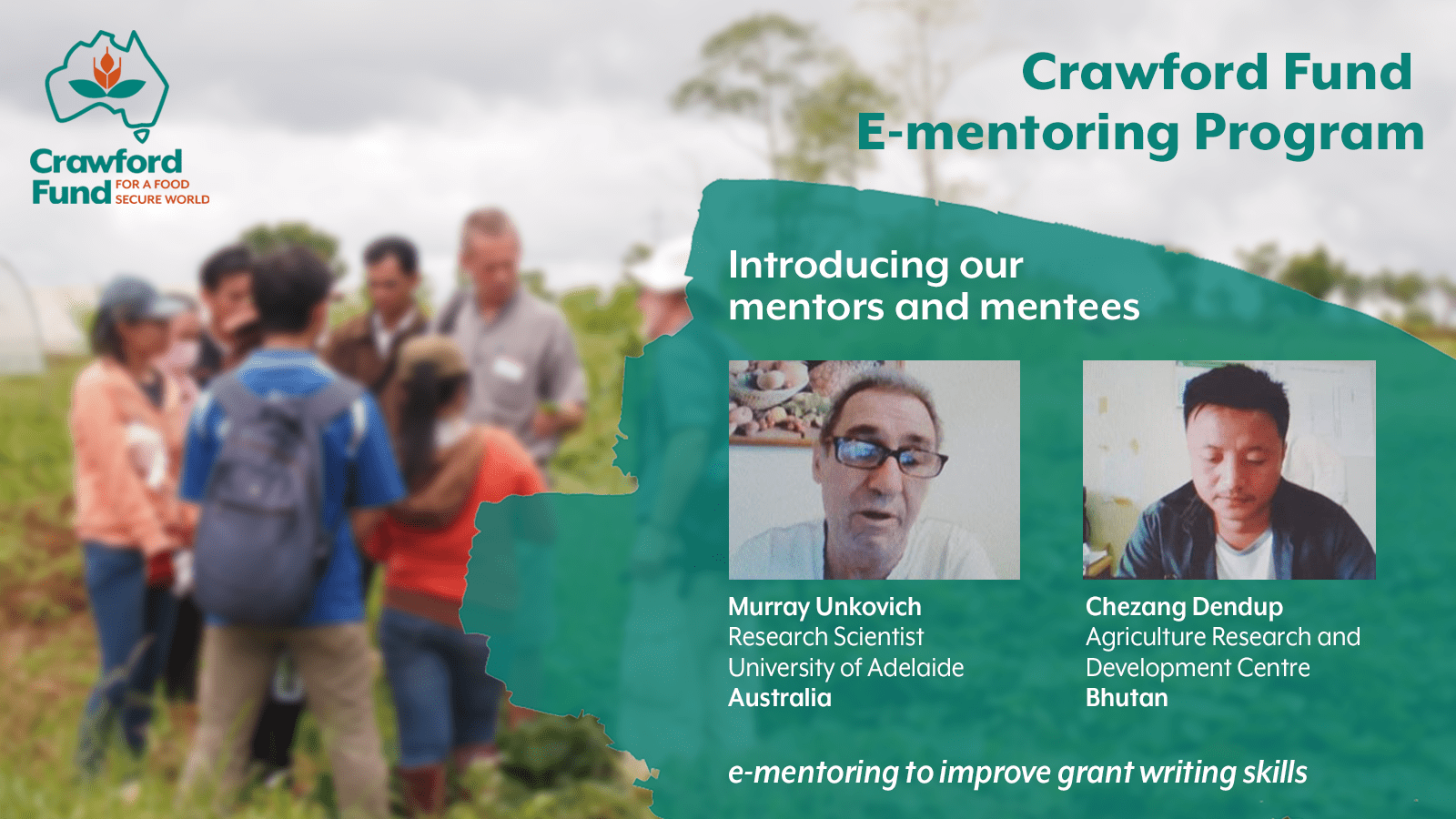

From Adelaide to Bhutan, e-mentoring to improve grant writing skills
August 17, 2021

Late last year we announced our first group of e-mentors and e-mentees as part of our new E-mentoring Program. This program was launched to ensure that, despite COVID-19 and its travel and life restrictions, we could continue to help develop the technical and organisational skills and expertise of agricultural researchers, scientists and policy makers in developing countries.
This program builds on the success of our long term existing Mentoring Program, which has seen face-to-face interaction in overseas countries, backed up by electronic contact, and our conference scholar mentoring program, matching young NextGen researchers with experienced Australians who attend our conference.
We hope that these e-connections not only deliver positive and targeted skill-sharing outcomes, but also enduring connections between the Crawford Fund, the volunteering mentors and their mentees, and the institutions and countries involved.
We now present our latest e-mentoring pair reflecting on their experience, Dr Murray Unkovich, Research Scientist at the University of Adelaide and his e-mentee Chezang Dendup, Agriculture Officer at the Agriculture Research and Development Centre, Samtenling, Bhutan.
You can also read earlier reflections from our e-mentors in Australia and their e-mentees in Fiji the Philippines, Ghana, Malaysia and the Philippines and Malaysia again!
E-MENTOR/E-MENTEE PAIRING – Murray Unkovich (Australia) and Chezang Dendup (Bhutan)
MENTOR
Murray Unkovich
Research Scientist
University of Adelaide
What motivated you to be a mentor?
Previous experience with IAR4D was very rewarding and the opportunity to work with a young scientist in developing country was very welcome.
What are the main goals you are focusing on from your agreed mentoring plan?
My mentee is primarily focused on improving grant writing skills.
What are the various ways you are communicating and what combination are you finding most useful?
We are primarily communicating by Zoom and also by email.
What are you getting out of our e-mentoring program?
A better understanding of the problems faced by researchers and by farmers in agricultural development in Bhutan.
MENTEE
Chezang Dendup
Agriculture Officer
Agriculture Research and Development Centre, Samtenling, Bhutan
What motivated you to nominate to be a mentee?
I had been following Crawford for quite some time since I am involved in agriculture research and developmental activities in Bhutan. I learned from a previous trainee regarding the enriching experiences he had as the mentee. Through his recommendations and the relevancy of the activities carried out by the Crawford Fund, I proposed to be nominated for the e-mentoring program.
What are the main goals you are focusing on from your agreed mentoring plan?
Through the guidance of my mentor, I am learning to write a research proposal for a master’s degree in rice. All the components of a good research proposal are the main topics I intend to learn from this program.
How is the e-mentoring helping your development?
The program has connected me with the learned researcher from Australia. Through his guidance, I could write a research proposal. The technicalities of the research proposal are our discussion area. I feel more confident now in developing research proposals and conducting research in agriculture.
Any lessons you could share with the other e-mentees?
My only lesson for e-mentees would be to make good use of time when busy mentors give time. Most of the time, mentors are busy, and making full use of some time they spare for us is crucial.


